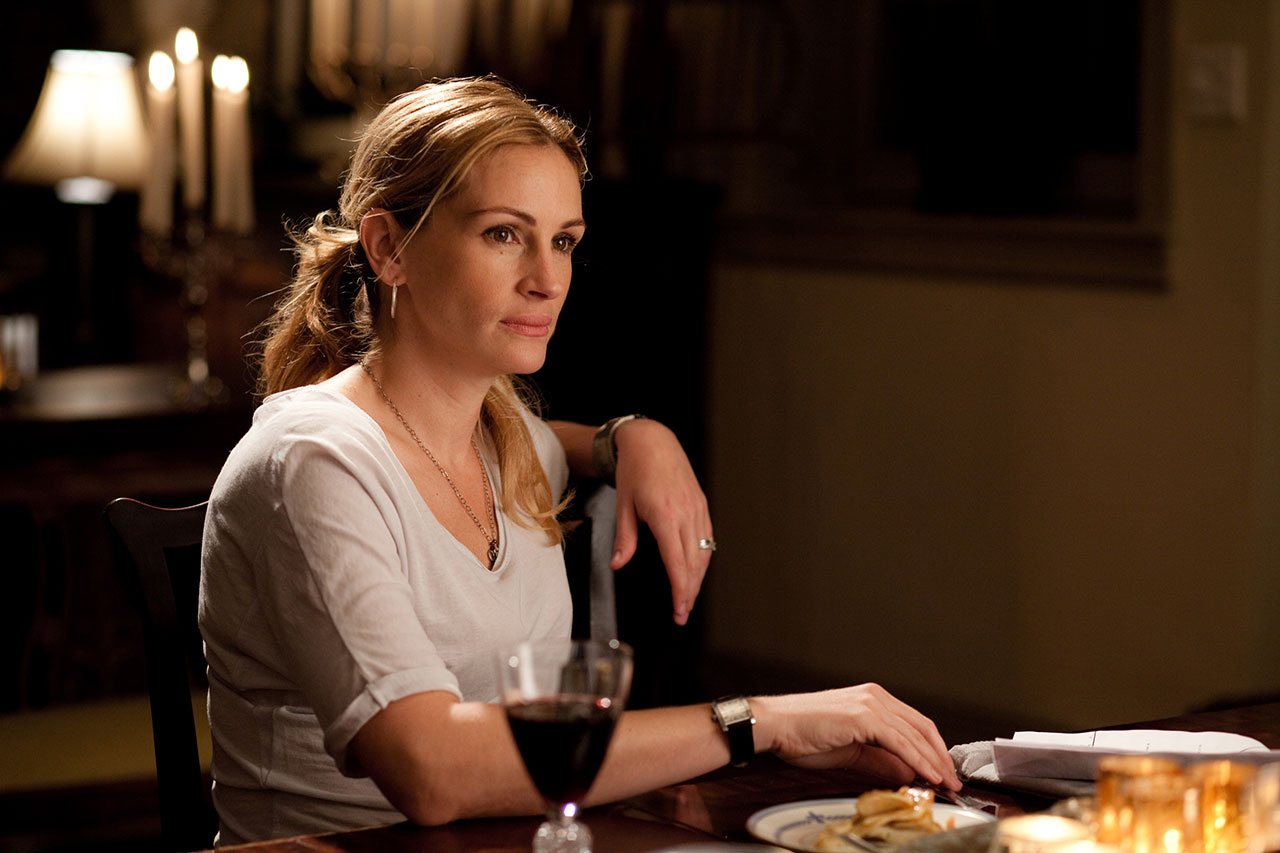News feed
In this exclusive extract from ‘Eat Pray Love Made Me Do It’, a new anthology that brings together the stories of those whose lives were changed by Elizabeth Gilbert’s global phenomenon ‘Eat Pray Love’, author Peter Richmond reflects on how his existential quest for enlightenment found resolve in an unconventional high school textbook.
Read Elizabeth Gilbert’s exclusive reflections on a decade of her memoir here.
For most of my life, I didn’t know what to believe in, Big Meaning-wise, as in: ‘What’re we here for?’ Was there an ultimate, original Creator? Or was the explanation for the universe to be found in the realm of physics and particles, with Everything reducible to the Talking Heads lyric, ‘It’s scientific!’?
I wasn’t satisfied by either pole. Although baptized and confirmed in an organized religion, from the start I thought the stories in the Bible made for great fiction. Nor was I ever willing to buy entirely into a pure-science paradigm, because, face it: string theory might make scientific sense, and might even be backed by empirical data, but any answer to a question about Being that doesn’t address the ‘Why?’ in the equation ain’t much of an answer.
“To be honest, though, I didn’t delve that deeply into trying to find The Truth About Existence. Most of the time, I was too busy trying to make things work out here on earth.”
By the time I reached the age of fifty, I’d resigned myself to the certainty that we simply weren’t equipped with intellects that could even accurately phrase The Question, let alone answer it. The more we studied each civilization’s fanciful notions of ‘the universe,’ the more I found myself looking, for the first time in a long time, for just a single certainty about existence—a single notion I could wrap my head around.
And then, just before my third year of teaching, during my fifty-fifth year of life, I came across a passage in Eat Pray Love and immediately closed the book. Something had finally clicked. Something that made instant, instinctive sense. I was no longer at sea. I was finally, in some measure at least, grounded—well, as much as you can be grounded in the infinite.

Julia Roberts in a scene from the filmic adaptation of Elizabeth Gilbert’s memoir, Eat Pray Love
Credit: Collider
Gilbert was describing an experience she’d had in India. The void was conscious and it was intelligent.
Instantly, I knew that Gilbert had described the true nature of being. Maybe it was the ‘intelligent’ part. As the author of more than a half-dozen nonfiction books, I’ve experienced some of my greatest joys in moments—and weeks, months and years— of learning and discovery. And so, perhaps it was the notion that after my death I would not lose my intelligence—rather, it would be amplified beyond quantification as it melded with the greater Intelligence—that gave me that moment of surety, clarity and even purpose. Gilbert gives the void a name: God. I’d prefer, I think, that this collective consciousness that knows no time or space be known as We. But godly or not, my belief in its existence carries some comfort in my remaining days.

Julia Roberts in a scene from the filmic adaptation of Elizabeth Gilbert’s memoir, Eat Pray Love
Credit: Collider
The postscript? That third fall semester in ancient civ was a very different class from the two that had preceded it. As the study of Egypt began—as Isis, Osiris, Ra, Horus and Bastet introduced themselves in our textbooks—I read that passage of Eat Pray Love to the class. The notion of an infinite, borderless, intelligent collective consciousness was, of course, quite new to them. And they dug it.
In the ensuing months, we spent far less time on the stale and boring (to fifteen-year-olds) details of the crop cycles of the Nile or the governance of the Greek city-states, and a whole lot more on how each culture viewed its gods. I’d come to see that teaching students the nature of a culture or civilization through its views of its gods—and, with the appearance of Yahweh in the lores of the kingdom of Israel its god (singular)—was a far more compelling way of bringing ancient civilizations alive than learning the names of kings, dynasties and battles.
I knew now that the search for a higher meaning in the metaphoric ‘heavens’ is a universal trait. And that taking that path can eventually bring one closer to, if not enlightenment, a place of comfort.
Extract taken from Eat Pray Love Made Me Do It: Life Journeys Inspired by the Bestselling Memoir, published by Bloomsbury, $18.99, out now










